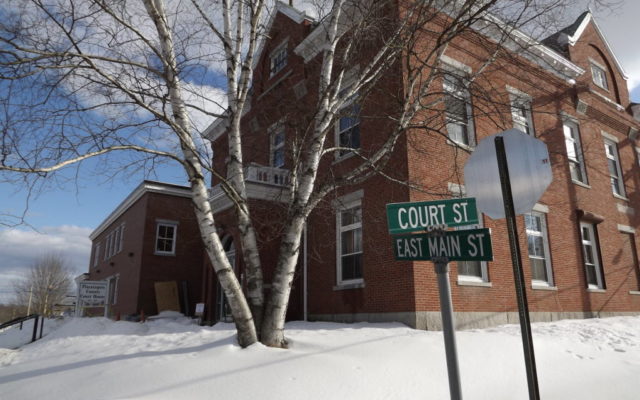
Maine’s local politics has taken a distinctly national turn
By David Marino Jr., Bangor Daily News Staff
It was once common to hear that all politics in the U.S. was local. Yet, local politics in Maine has taken on a distinctly national bent in recent months.
More than half a dozen Maine towns and cities have declared themselves 2nd Amendment sanctuaries in recent weeks, including sizable communities such as Caribou and Fort Fairfield. And the fallout from a January anti-mask resolution continues to reverberate in Piscataquis County, where county commissioners last week refused to write a letter of support for a local theater because of the political views of its executive director and board chair on COVID-19 restrictions.
In Hancock County, Sheriff Scott Kane last year prohibited a public health group from providing opioid recovery coaches to local jail inmates because it issued a statement in support of the national group Black Lives Matter
The shift, which experts say is driven by growing partisanship and newer trends in media consumption, means that officials across Maine’s nearly 500 municipalities and 16 county governments could pay less attention to less polarizing local issues in favor of national issues over which they have virtually no influence.
What’s happening in Maine is no fluke. Members of local governing bodies are bringing up national issues more than ever, said Steven Webster, a political science professor at Indiana University and author of the book “American Rage: How Anger Shapes Our Politics.” Increased political partisanship at the national level has made its way into local politics, as has something called negative partisanship, when a political actor takes a position purely out of disdain for those on the opposite side of the political spectrum.
“Americans increasingly view local politics through a national lens,” Webster said.
The entry of national issues into local debates often corresponds with national events. The rise of 2nd Amendment sanctuaries across Maine occurred shortly after Democratic President Joe Biden’s inauguration, as well as the introduction of gun regulation legislation in the Maine Legislature and U.S. Congress.
“These bills affect legal gun owners, and there is a fear today that the new administration now in office will play games with our constitutional rights,” Fort Fairfield Town Council member Bob Kilcollins said in February. “And that is not fair.”
In Piscataquis County, a series of text messages that went out to local numbers last week, purporting to be from the local activist group PROACT, highlighted controversial wedge issues including transgender-friendly bathrooms, refugee resettlement and gender-neutral pronouns.
The debate at hand had nothing to do with those things, but rather the Center Theatre’s application for a federal grant to pay for structural repairs, and its appeal for support from the county’s three commissioners.
PROACT, a recently formed local activist group, takes no stance on the issues mentioned in the text messages. It formed in response to the county commissioners’ January passage of an anti-mask resolution that referred to the coronavirus as the “Wuhan virus” and said mask-wearing could cause respiratory illness.
A list of bank account transactions the group’s treasurer provided showed no evidence that PROACT had ordered a text campaign.
Brian Friedberg, a researcher who studies disinformation at Harvard University’s Tech and Social Change Project, said the texts highlighted issues often discussed in national right-wing media.
The consolidation of the media landscape and decline of local news outlets have also helped spur local politics’ nationalization, Webster said. He noted that local television stations taken over by the Sinclair Broadcast Group — which owns nearly 200 television stations across the country, including WGME in Maine, with which the BDN shares content — had shown content that was more national and partisan after the company acquired them.
While most people once got their news from local newspapers and television stations, they now have easy access to a wider variety of sources, whether reputable national outlets or sites that present news from a distinctly partisan perspective.
Not all of the implications of this development are negative, Webster said. Many view national politics as more interesting than local politics, and local governments’ attention to national debates could bring new faces into local politics, a branch of elected government where political participation is often low. The rise of partisan media is also not as much a new concept in the U.S. as a reversion to how newspapers operated with a clear political bent in centuries past.